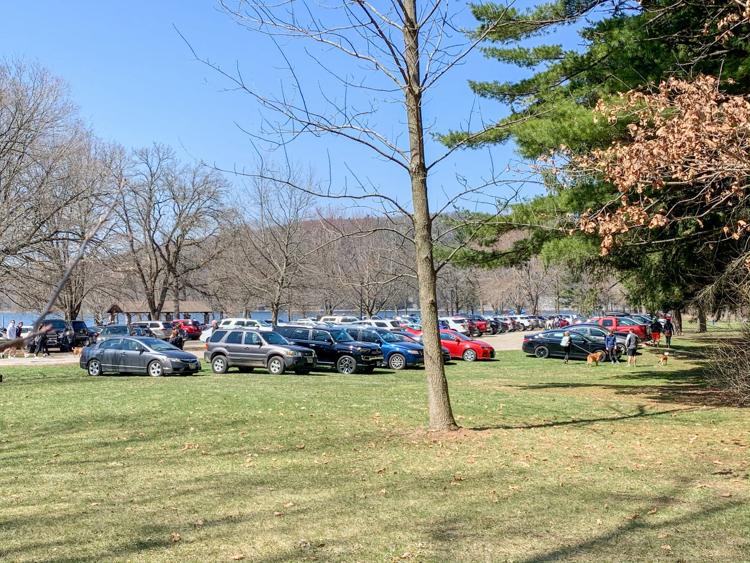AVI links to a common sense essay by Kling. Except for the bit about ventillators, which I don't know enough about to have an opinion on, this matches my view of the situation.
I have said for years (even on this blog), that defense against non-human invaders is a responsibility that can rise to the same level as defense against human ones, and that we should plan accordingly. And fund the planning. Epidemics can get a lot worse than this one, and will.
One of the similarities between the DoD and the Department of Plague Defense is that in both cases you have to be adaptable. OK, so the enemy is coming through that impenetrable forest after all--your old plans are no good: adjust.
The generals we curse are the ones who doubled-down on stupid. When this virus first appeared, China was getting draconian. (The Chinese say that all is well now, and it wasn't from China in the first place, so I infer they're still in deep trouble.) Italy got hit hard. Knowing little more than that, radical measures seemed appropriate, but given the political effect of "it hasn't happened here yet," even things as obvious as shutting down travel with China roused objections.
We know more now. We don't have vaccines, and won't; we don't have cures, and won't for a while, if ever. We can see patterns, though. Some things look like they'll help, and some don't. Outdoor activities--probably OK. Singing--probably not OK. Close quarters--not OK. Aggressive air circulation/filtering--worth checking. Masks--if I were a business owner I'd demand that customers wear them. Putting the homeless in hotels--probably not as kind an idea as it seemed. Releasing prisoners--looks like that was a bad idea too. Listening to panic mongers--very bad idea.
Another similarity between the two defense arrangements is that you find profiteering and power grabs in both. "For the duration of the emergency" is a classic excuse. We've done mostly OK with keeping power grabs under control (yes, I've heard of exceptions), and sometimes we even prosecute war profiteers. When designing the Department of Plague Defense we can use some of the lessons learned from keeping the military under control to keep the new systems under control.
Who decides when a situation has risen to the level of an emergency? And who is accountable? Political partisans aside, most of us tend to forgive good-faith mistakes, but get impatient with CYA and refusal to decide--and refusal to notice that charges across no-man's-land aren't working very well. (*)
How do we define victory? "If it saves one life, it's worth it" is not a wise calculation. (I'm being kind.)
Another similarity is that both are guided by politics. The World Wars are pretty clear examples--there were plenty of sympathizers with the "other side" before, and some even after we committed to war. A large fraction of the "news" about the current epidemic is driven by political partisanship and not by dispassionate analysis of the data.
In time of peace and prosperity, the top officials for both will care more about internal politics and budgets than their mission, and congress-critters with pet programs will invite the agencies to "work smarter" and pare budgets. And both will indulge in fantasy boondoggles (the Zumwalt class destroyer, for example).
Yet another is that, when the real problem rises, both will probably be caught with their pants down. The CDC didn't cover itself with glory this time around, and military history can make you weep. On the other hand, without some infrastructure and thought beforehand, things would have been even more dire.
No plan survives first contact with the enemy. On the other hand, without a plan you will lose.
UPDATE: One more thing. One way we keep the military under control is by clear definition of the mission. Military are not police..
Defense against plagues is not public health.
(*) The Athenian approach didn't work very well and I'm not advising it, but I suspect that if there were more reporting of what Generals/Admirals say and do, and if they could face recalls, quite a few would be gone.




